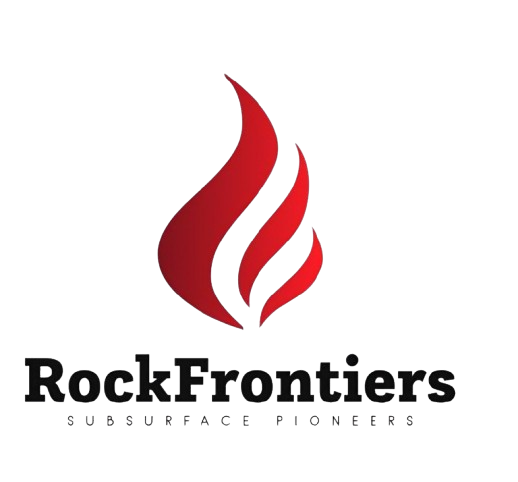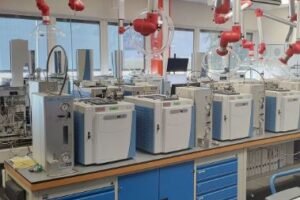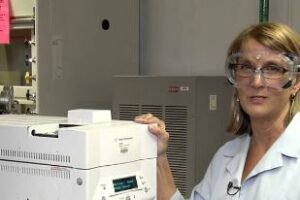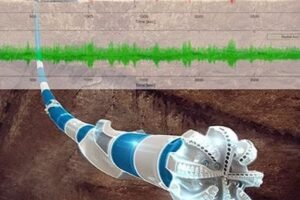📘 Course Description:
This intensive course provides a comprehensive understanding of Gas Chromatography (GC) and its application in chemical, petrochemical, pharmaceutical, and environmental laboratories. Participants will learn the fundamentals of gas chromatographic theory, the hardware components, detector technologies, sample preparation, method development, and quantitative data interpretation.
A strong focus is placed on practical troubleshooting, advanced method optimization, and real-world applications of GC in fields such as oil and gas (hydrocarbon fingerprinting, VOCs, refinery gases), environmental monitoring, and quality control.
🎯 Learning Objectives:
Participants will be able to:
-
Understand the theory and operational principles of gas chromatography
-
Select suitable columns, carrier gases, injectors, and detectors
-
Develop and optimize analytical GC methods
-
Prepare samples and calibration standards for GC analysis
-
Troubleshoot common GC hardware and chromatographic issues
-
Apply GC to real-world samples (oil, gas, water, soil, pharma, food)
🗓️ Day 1: Fundamentals of Gas Chromatography
| Time | Topic |
|---|---|
| 08:30 – 09:00 | Course Welcome & Introduction |
| 09:00 – 10:30 | Principles of Gas Chromatography: Retention, Separation, Resolution |
| 10:30 – 10:45 | Coffee Break |
| 10:45 – 12:00 | GC System Components: Injectors, Columns, Detectors, Data Systems |
| 12:00 – 13:00 | Lunch |
| 13:00 – 14:30 | Carrier Gases, Flow Control & Injection Techniques |
| 14:30 – 14:45 | Break |
| 14:45 – 16:30 | Types of GC Columns (Packed vs Capillary) and Column Selection |
🗓️ Day 2: Detectors, Calibration, and Sample Preparation
| Time | Topic |
|---|---|
| 08:30 – 10:30 | Common GC Detectors: FID, TCD, ECD, NPD, MS |
| 10:30 – 10:45 | Coffee Break |
| 10:45 – 12:00 | Detector Response Factors and Calibration Methods |
| 12:00 – 13:00 | Lunch |
| 13:00 – 14:30 | Sample Preparation Techniques (Headspace, SPME, Derivatization) |
| 14:30 – 14:45 | Break |
| 14:45 – 16:30 | Practical Demo or Case Study: Sample Injection & Calibration |
🗓️ Day 3: Method Development and Optimization
| Time | Topic |
|---|---|
| 08:30 – 10:30 | GC Method Development Workflow |
| 10:30 – 10:45 | Coffee Break |
| 10:45 – 12:00 | Optimizing Temperature Programs & Flow Rates |
| 12:00 – 13:00 | Lunch |
| 13:00 – 14:30 | Peak Shape, Resolution, and Retention Time Adjustments |
| 14:30 – 14:45 | Break |
| 14:45 – 16:30 | Hands-on Workshop: Creating a Method for VOC or Hydrocarbon Sample |
🗓️ Day 4: Troubleshooting and Advanced Techniques
| Time | Topic |
|---|---|
| 08:30 – 10:30 | Troubleshooting Common GC Problems (Ghost Peaks, Leaks, Drift) |
| 10:30 – 10:45 | Coffee Break |
| 10:45 – 12:00 | Column Degradation, Septum Bleed, Detector Noise |
| 12:00 – 13:00 | Lunch |
| 13:00 – 14:30 | Introduction to GC-MS: Principles & Setup |
| 14:30 – 14:45 | Break |
| 14:45 – 16:30 | Automated Sampling & Lab Data Management in GC Systems |
🗓️ Day 5: Applications and Data Interpretation
| Time | Topic |
|---|---|
| 08:30 – 10:30 | Applications in Petroleum, Environmental & Pharmaceutical Labs |
| 10:30 – 10:45 | Coffee Break |
| 10:45 – 12:00 | Data Interpretation: Quantitation, Validation, and Reporting |
| 12:00 – 13:00 | Lunch |
| 13:00 – 14:30 | Regulatory Aspects (EPA, ASTM, ISO, USP, API) |
| 14:30 – 14:45 | Break |
| 14:45 – 16:30 | Final Assessment, Review & Certificate Distribution |
📘 Course Materials Provided:
-
Chromatogram examples (PDF + Raw Data)
-
Method development template (Excel)
-
GC troubleshooting guide
-
Lab exercises or simulation software access
-
Certificate of Completion
👥 Who Should Attend:
-
Laboratory Analysts and Chemists
-
Environmental & Petrochemical Technicians
-
QA/QC and R&D Professionals
-
Regulatory Compliance Officers
-
Graduate Scientists and Interns





